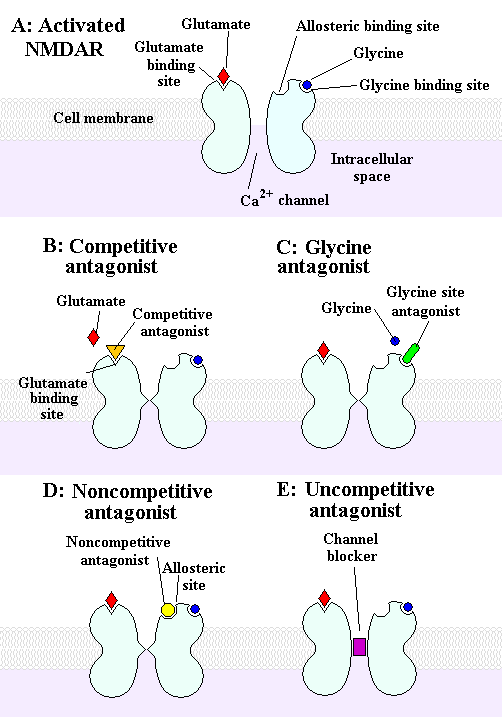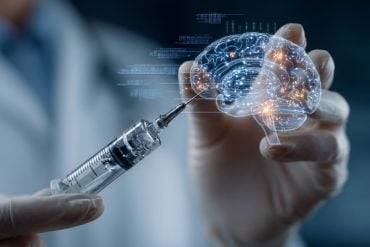Synaptic molecule works differently than thought; may mean new therapeutic targets for treating Alzheimer’s disease.
In a pair of new papers, researchers at the University of California, San Diego School of Medicine and the Royal Netherlands Academy of Arts and Sciences upend a long-held view about the basic functioning of a key receptor molecule involved in signaling between neurons, and describe how a compound linked to Alzheimer’s disease impacts that receptor and weakens synaptic connections between brain cells.
The findings are published in the Proceedings of the National Academy of Sciences.
Long the object of study, the NMDA receptor is located at neuronal synapses, the multitudinous junctions where brain cells trade electrical and chemical messages. In particular, NMDA receptors are ion channels activated by glutamate, a major “excitatory” neurotransmitter associated with cognition, learning and memory.

“NMDA receptors are well known to allow the passage of calcium ions into cells and thereby trigger biochemical signaling,” said principal investigator Roberto Malinow, MD, PhD professor of neurosciences at UC San Diego School of Medicine.
The new research, however, indicates that NMDA receptors can also operate independent of calcium ions. “It turns upside down a view held for decades regarding how NMDA receptors function,” said Malinow, who holds the Shiley-Marcos Endowed Chair in Alzheimer’s Disease Research in Honor of Dr. Leon Thal (a renowned UC San Diego Alzheimer’s disease researcher who died in a single-engine airplane crash in 2007).
Specifically, Malinow and colleagues found that glutamate binding to the NMDA receptor caused conformational changes in the receptor that ultimately resulted in a weakened synapse and impaired brain function.
They also found that beta amyloid, a peptide that comprises the neuron-killing plaques associated with Alzheimer’s disease, causes the NMDA receptor to undergo conformational changes that also lead to the weakening of synapses.
“These new findings overturn commonly held views regarding synapses and potentially identify new targets in the treatment of Alzheimer’s disease,” said Malinow.
Notes about this neuroscience research
Co-authors on both papers are Helmut W. Kessels, Center for Neural Circuits and Behavior, Departments of Neuroscience and Biology, UCSD and Netherlands Institute for Neuroscience, Royal Academy of Arts and Sciences; and Sadegh Nabavi, Center for Neural Circuits and Behavior, Departments of Neuroscience and Biology, UC San Diego.
The research was funded in part by the National Institutes of Health (grants MH049159 and AG032132), the Shiley-Marcos Foundation, the Cure Alzheimer’s Foundation, and the Internationale Stichting Alzheimer Onderzoek.
Contact: Scott LaFee – UCSD
Source: UCSD press release
Image Source: Credited to Delldot at Wikimedia Commons and licensed as public domain.
Original Research: Abstract for “Metabotropic NMDA receptor function is required for NMDA receptor-dependent long-term depression” by Sadegh Nabavi, Helmut W. Kessels, Stephanie Alfonso, Jonathan Aow, Rocky Fox and Roberto Malinow in Proceedings of the National Academy of Sciences. Published online February 19 2013 doi: 10.1073/pnas.1219454110
Abstract for “Metabotropic NMDA receptor function is required for β-amyloid–induced synaptic depression” by Helmut W. Kessels, Sadegh Nabavi, and Roberto Malinow in Proceedings of the National Academy of Sciences. Published online February 19 2013 doi: 10.1073/pnas.1219605110






